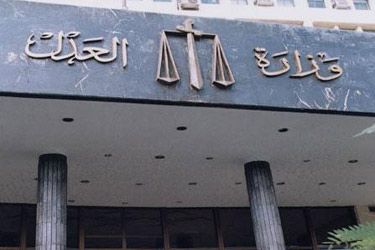In an unprecedented initiative, Judge Ahmed Mekki, the Minister of Justice, met with a group of human rights organizations yesterday, Tuesday, August 28, to discuss the challenges related to addressing the security situation and the freedom of association without infringing on human rights values and guarantees. The meeting was held at the invitation of the minister as part of a cooperative effort with rights organizations to protect human rights values in the midst of the current challenges. The meeting included representatives from advocacy groups and the Forum of Egyptian Independent Human Rights Organizations, composed of 22 organizations, as well as the minister’s advisor on legislation.
The rights groups stated that the return of security is fundamentally linked to radically reforming the police, an initiative that was not undertaken after the January 25 Revolution despite numerous demands. They emphasized that 31 years of a state of emergency, repressive laws, and the absence of oversight for the Interior Ministry had resulted in a decline in police competence and the committal of thousands of crimes and human rights violations.
The organizations noted that since the revolution, the security apparatus has intentionally been absent or returned to the streets only half-heartedly in an attempt to force citizens to accept a return to the ways of the pre-January 25 Interior Ministry. The organizations asserted that existing laws are more than adequate to confront the alleged security vacuum and that the restoration of security is primarily dependent on political will, not the addition of new repressive laws or the declaration of a state of emergency.
Participants of the meeting also discussed the crisis of the right to form NGOs. The rights organizations stated that there can be no democratic reform without an active civil society working in a free political and legislative environment, stressing that existing legal and administrative barriers are an obstacle to the ability of these organizations to play their proper role. They asked that the Ministry of Justice review and rectify its hostile practices against advocacy groups, as seen during the campaign launched against them last year.
Participants rejected the ongoing suppression of associations and NGOs and the interference in their affairs, noting that the situation did not change after the revolution or the election of President Morsy and the formation of his government. For example, the governor of Menoufiya recently dissolved the Rural Revival Association by administrative decree. Moreover, thousands of associations suffer from government control and interference in their spheres of work.
In this context, the organizations presented to the minister a copy of their proposed NGO law, which is signed by 56 advocacy groups and which had previously been submitted to the Human Rights Committee of the People’s Assembly.
In addition, the organizations gave the Minister of Justice a memo prepared by the Forum of Egyptian Independent Human Rights Organizations, titled “Maintaining security without infringing on human rights: No exceptional measures needed, existing law sufficient.” The CIHRS gave the minister a memo titled, “Police reform: A pressing need to restore security and respect human rights,” while the National Initiative to Rebuild the Police gave him a copy of their memo, “A police for the people of Egypt.”
Share this Post

